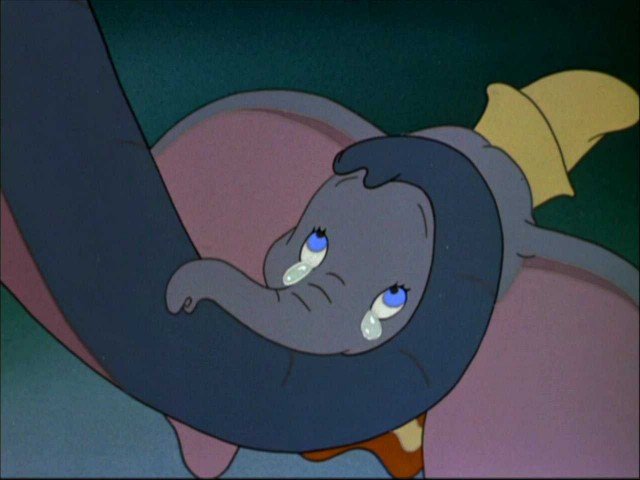
The stories of Disney classics often come from famous fairy tales, legends and great myths. In the very particular case of Dumbo, we are dealing with a film inspired by a short story of not even ten pages, written by Helen Aberson and illustrated by Harold Pearl in 1939. All this found Walt Disney's interest when it was distributed in a particular format, called Box & Scroll or Roll-A-Book, which required that illustrations and text be put in sequence in a "box", making reading something similar to watching a film. Walt, to the amazement of Aberson herself, fiercely rejected the affair and immediately took over the rights, before making the film that was released in 1941.
Despite Disney's interest, Dumbo was not supposed to represent a huge investment for his studies. Made more as a filling work in the middle of the war (so much so that contrary to what was done until that time Walt Disney did not directly take care of its realization), ends up being the anchor to rescue Disney itself, back from the bad box office results of Pinocchio and Fantasia (due largely to the outbreak of war in Europe). It took only six months to complete and the closure of European markets, which prevented their export, did not bode well. And instead, it's a bit of a story to come: the film costs $830,000 and grossed $2.5 million, more than Pinocchio and Fantasia brought home together. Voices say that Dumbo immediately became Walt Disney's favourite film. Who knows why.
In addition to being cited (with good reason) by Spielberg as a psychological refuge for Americans in times of war in his film "1941 Hollywood Alarm" (General Stilwell is moved to the cinema and goes to see it when it is released), the elephant had grabbed the cover of the December 1941 issue of Time, a goal that was much coveted by many. The cover never saw the light, however, due to greater forces, or the attack of Pearl Harbor, who rightly monopolised attention.
A bit of primates conquered by Dumbo: is Disney's first feature set in America and the first to present a protagonist who never speaks for the whole film (this is obviously if we don't consider Cucciolo a protagonist); The Italian version was the first adaptation edited by Roberto De Leonardis, a historical figure who personally took care of all the classics from 1950 to 1981 (except for "The Box of the Seven Pearls"); finally, it is the shortest Disney Classic ever, of just 64 minutes. Among other notable events, Walt Disney's letter of congratulations to the Cetra Quartet and to De Leonardis himself for his excellent work in the Italian version.
The period that accompanied the production of Dumbo was turbulent. Among the many problems, worthy of note is that of the animators' union Screen Cartoonist Guild, led by Herbert Sorrell, who clashed hard with Walt Disney for the signing of an agreement that protected the conditions of workers. After the many refusals of Disney, on May 29, 1941, with the production of the film now well underway, a strike was reached that involved a large part of the staff, which was even loaded into the film, when clowns go to ask the increase to the main. After five weeks the whole thing ended, affecting the reputation of Disney Studios, no longer an idyllic place.
Nice to know :)
Downvoting a post can decrease pending rewards and make it less visible. Common reasons:
Submit